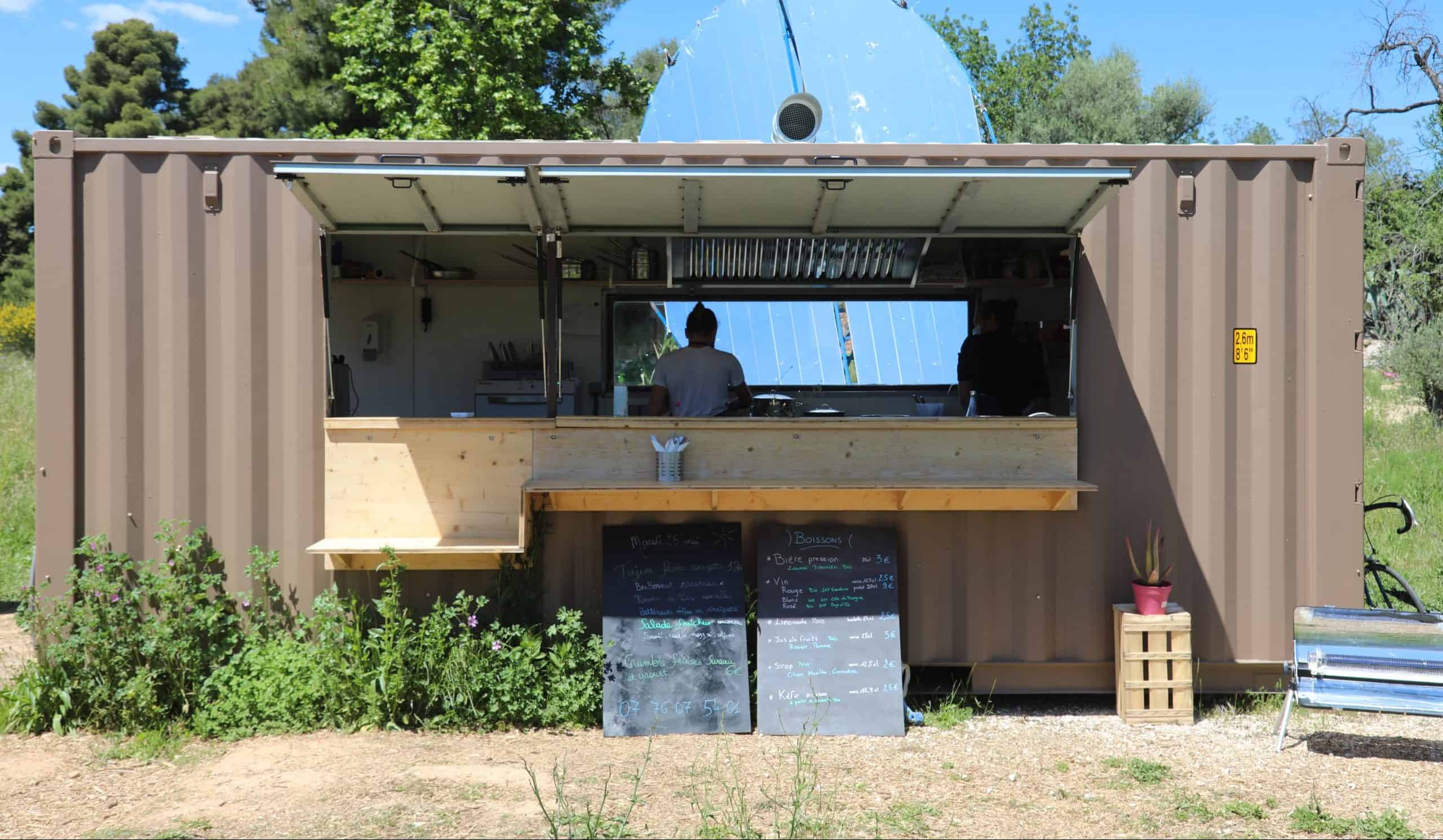When you think back on 2021, your mind may naturally drift to the difficult parts: fires, floods, conflicts, variants. To focus on the negative is only human. But if you’ve been taking your daily dose of RTBC, you know that there have been green shoots sprouting and bright spots shining in every dark nook and cranny. As we stumble into 2022, here’s a look back at a few of the positive changes we reported on in the last year — 192 of them, to be precise. Happy New Year!
To prevent the Sahara Desert from spreading southward, a 5,000 mile line of trees is being planted across the African continent.
A California law that gives non-car commuters a cash payout helped increase transit ridership by 50%.
After decades of efforts, China has gone from 30 million cases of malaria to zero, essentially eradicating the disease.
The total number of incarcerated people in the U.S. fell by 13% between 2010 and 2020.
Up to 400 Spanish companies will reduce their employees’ working week to 32 hours while keeping salaries the same.
El Paso Community College used its pandemic relief aid to forgive $3 million in student debt.
A French ban on single use plastics for many fruits and vegetables will reduce plastic packaging by one billion units per year.
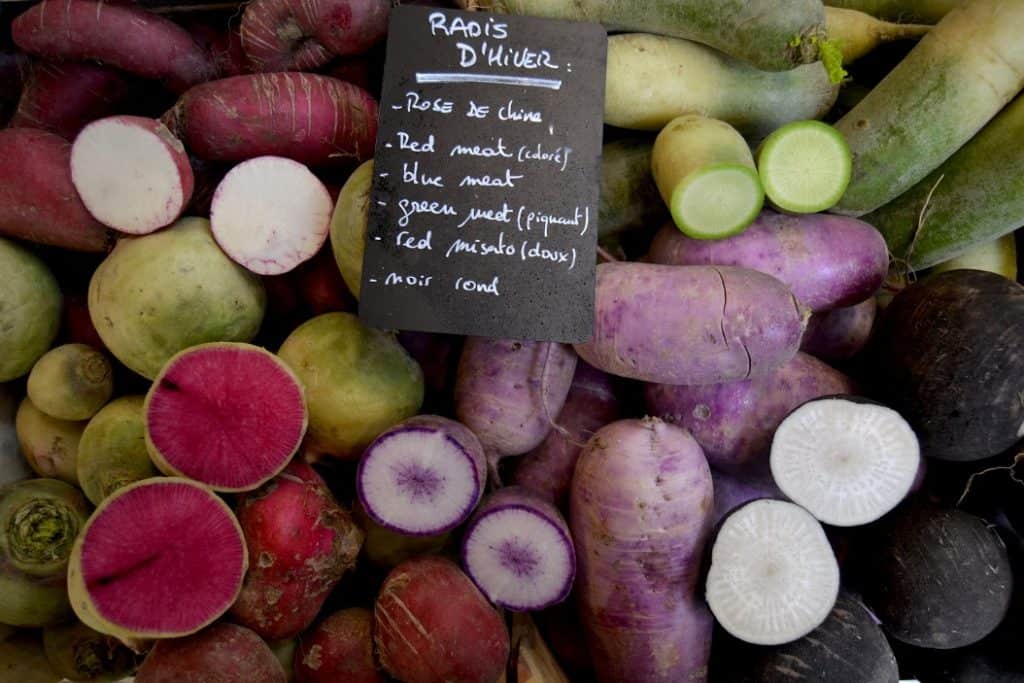
A Vancouver company has upcycled 33 million chopsticks since 2016 into everything from cutting boards and shelves to dominos and furniture.
Sanitation workers in Turkey have rescued over 6,000 books from the trash — and they’ve opened a library so the public can check them out.
A solar-powered fridge that can last for up to two weeks without electricity is being used to transport vaccines to over 50 countries.
Sweden has delivered the world’s first batch of steel produced without fossil fuels, and industrial quantities of it could be on the market within five years.
41 women topped the new Fortune 500 list, more than at any other time in the six decades that the list has been published.
300 women showed up to a women-only party in Nigeria to dance without fear of sexual harassment.

Due to the pandemic, China’s seasonal springtime shift occurred 8.4 days earlier than it has in recent years — and leaf coverage increased by nearly 18 percent.
After a town in Arizona converted a juvenile detention center into a youth hangout, juvenile arrests in the county dropped by 55%.
The U.S. is phasing out HFCs in refrigerators, which could eliminate emissions equivalent to 4.7 billion metric tons of carbon dioxide by 2050, about as much as a billion cars emit in a year.
Ecuador will add 23,000 protected square miles to its current 50,000 square miles of the Galapagos Islands.
The Netherlands is making all of its train stations accessible to its 320,000 visually impaired citizens.
Scientists in Bastia, France are deploying 150,000 oysters to help depollute their port.
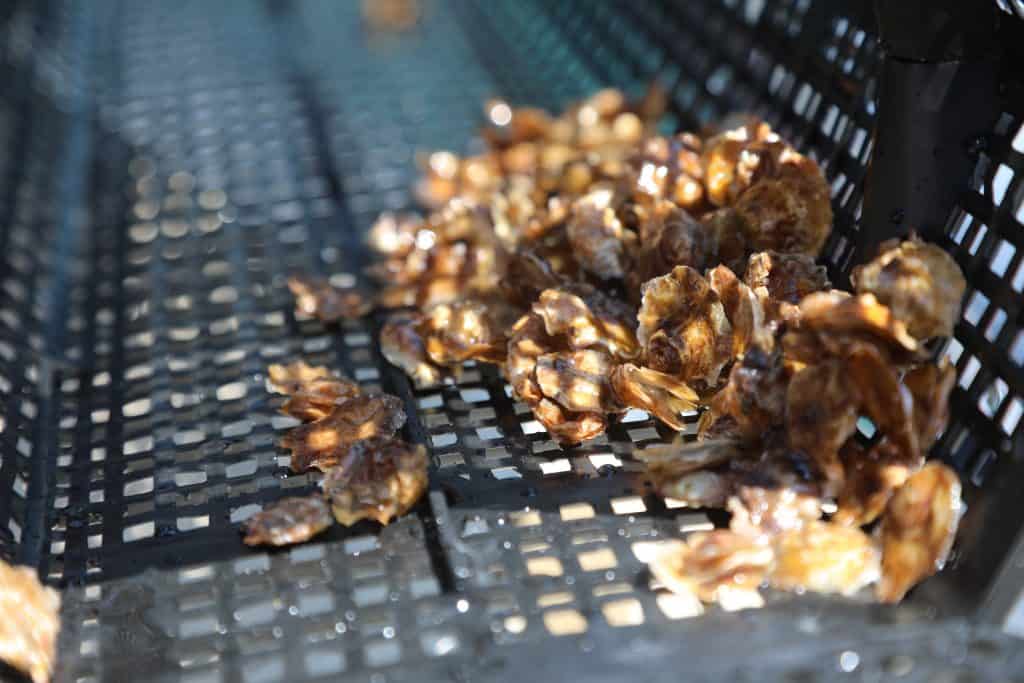
Milan is saving 260,000 meals per day as the first major city to enforce a citywide food waste policy.
Overfishing has been eliminated in 91% of U.S. fish stocks.
India pledged to get half of its energy from renewable sources by 2030 and achieve net-zero emissions by 2070.
In Barcelona, hundreds of children are riding their bikes to school together in a vivid display of impromptu street reclamation.
In the past eight years, the number of worker-owned co-ops in the U.S. has increased 36%. The business model offers employees, on average, more than $7 more per hour than standard businesses.
A research startup is developing a “bee vaccine” for pollinators to protect them from harmful pesticides.
A Shanghai dance troupe in wheelchairs has performed over 70 shows.
Over 100 countries have agreed to cut global methane emissions by 30% by 2030.

80% of Napa Valley winemakers are using owls to control their rodent populations.
19 U.S. states have enacted laws that allow mobile home park residents to collectively buy the land they’re living on.
A simple letter-grading system that shows how eco-friendly grocery items are led to a 10% reduction in meat consumption.
The United Nations is aiming to ecologically restore 350 million hectares of land in 70 nations by 2030.
Washington, D.C. converted 20 acres of sewershed into green infrastructure with curbside rain gardens, permeable parking lanes, permeable sidewalk pavers, “landscape infiltration gaps” and new street trees.
In Congo, deforestation is 23% lower than the national average in forests managed by the communities that live in them.
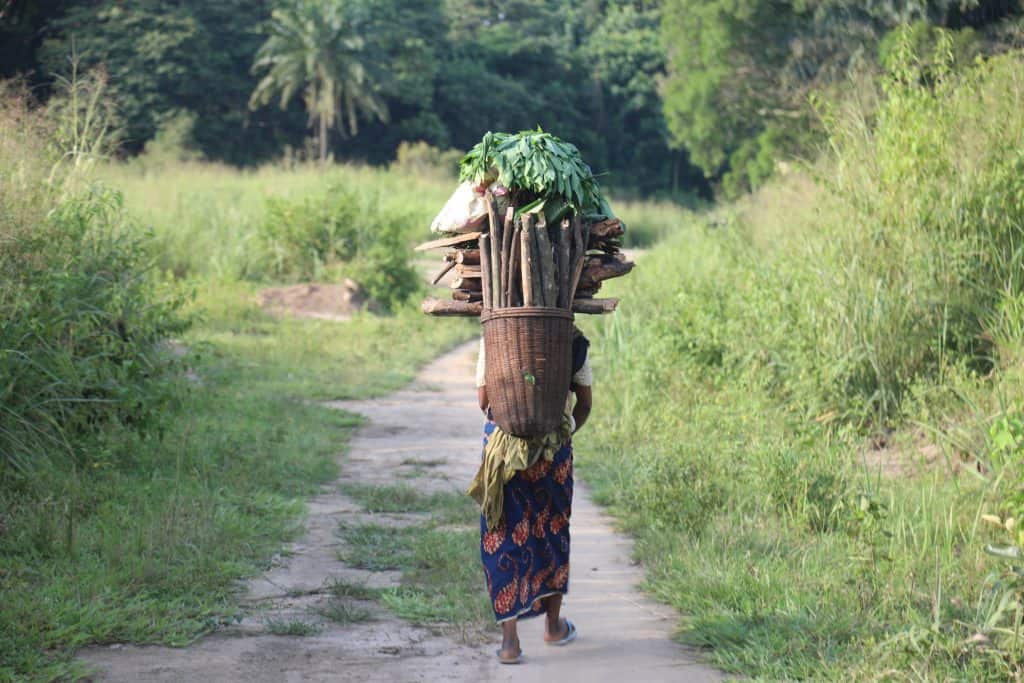
Wooden cat houses in Istanbul are providing shelter for the city’s estimated 125,000 strays.
11 cows were potty-trained by German researchers, showing the potential for a substantial reduction in agricultural emissions.
Paris is greening its public housing — in its tallest residential building, energy bills have fallen by 47%.
A stretch of beach worth $75 million was returned to the Black family it was taken from 97 years ago.
Incarcerated men in California are training dogs in a program that has saved and placed more than 680 rescued pooches into homes.
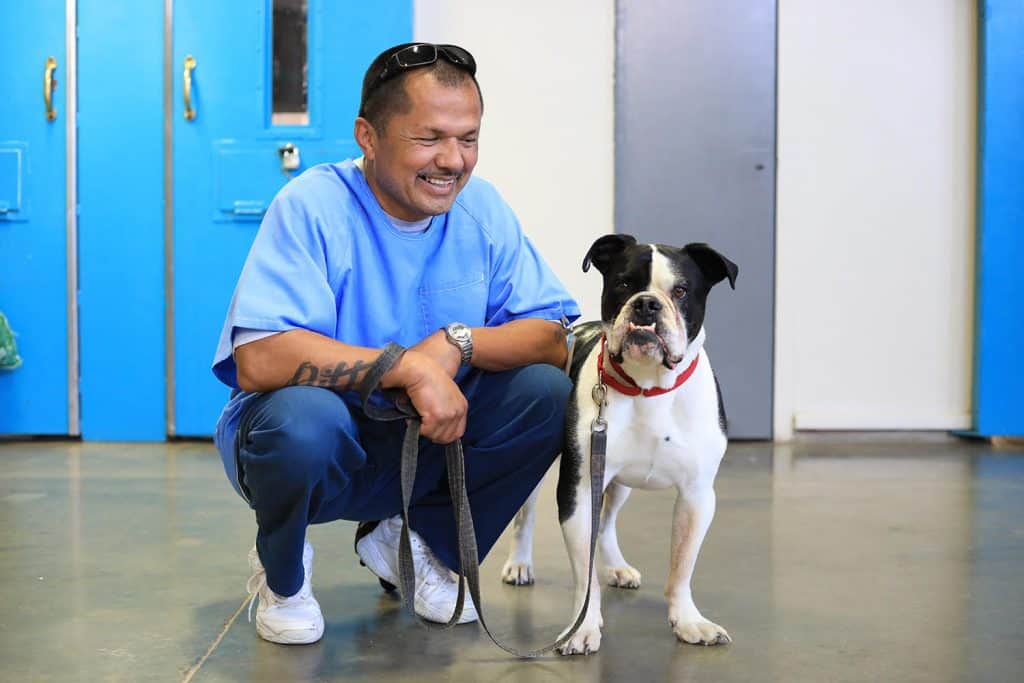
By comparing current satellite imagery with aerial photos from World War 2, researchers have found that the islands of Micronesia and parts of Kiribati have increased in total area by two to three percent.
New York’s highest court has agreed to hear a case about granting legal rights to a 50-year-old elephant in the Bronx Zoo.
When a denim company was forced to go green by new environmental laws, it reduced water use by 75% and chemicals by 65% — and is now selling its ultra sustainable product to the world’s biggest brands.
Burn patients who were immersed in a virtual world of icebergs and snowmen felt up to 50% less pain when having their bandages changed.
A program in Montana connecting medical patients to lawyers has helped more than 130 people find financial and legal stability during their recoveries.
140 refugees living in Kenyan refugee camps have been trained in online freelancing, helping them earn a better income and giving them more independence in the workforce.
In Austin, Texas, working-class folks who have been priced out by gentrification will be given priority for 560 new units of affordable housing.
This month, “Orca,” the world’s biggest direct air capture plant, opened in Iceland, and will pump 4,000 tons of captured CO2 underground per year.
Los Angeles is painting more than 250 city blocks with a reflective paint that is lowering temperatures in those neighborhoods by two degrees Fahrenheit.

After Nassau County in New York removed race from social welfare forms, the percentage of Black children placed into foster care dropped 36%.
After going carbon-neutral and vegan, one soccer club has quadrupled its visitors and quintupled the amount of food sold at the stadium.
Shandon Elementary in California will become America’s first public school to mill its own flour on site.
Ten advocates have helped 325 people eliminate nearly 40,000 days in jail, saving society $4.9 million.
A South Korean scheme is letting rural residents hail a taxi for 100 won — or about nine U.S. cents.
New legislation is capping phone call costs for incarcerated folks at 14 cents per minute, and some states are offering free video calls and emails.
600,000 acres of intensively farmed English countryside could be returned to wildlife over the next 50 years.
100,000 employees are finding affordable, quality childcare through a new app that partners with employers to subsidize babysitters.
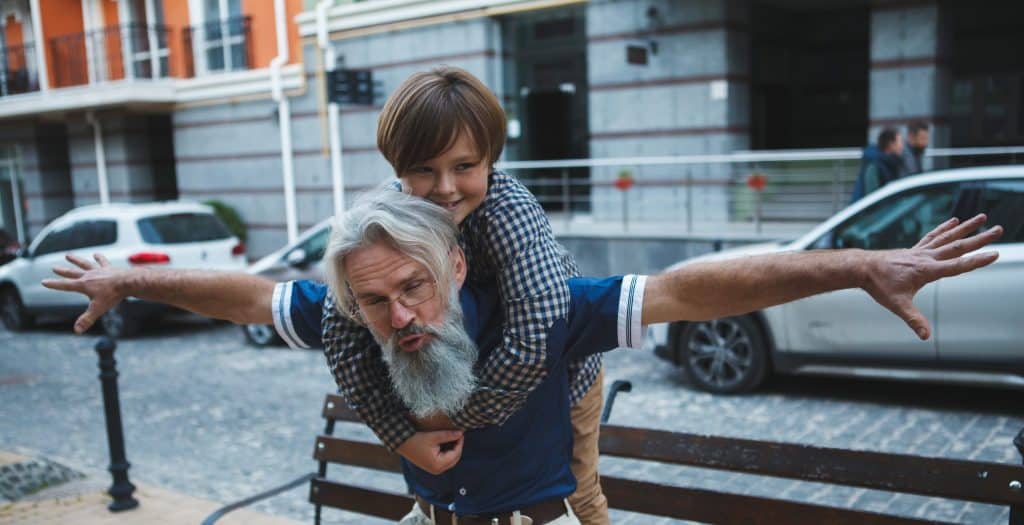
In North Carolina, a former prison has been turned into a farm run by at-risk teenagers, and 95% of the youth involved with the program have avoided recidivism.
Scientists have found that a new method of repairing coastal ecosystems doubled survival rates of many of the restored environments.
Millions of dirt floors that harbor insects and disease are being replaced with a cheap flaxseed resin developed by students.
A French biotech company has set up a factory near Bordeaux that is capable of producing 2,500 liters of organic fertilizers from urine per day.
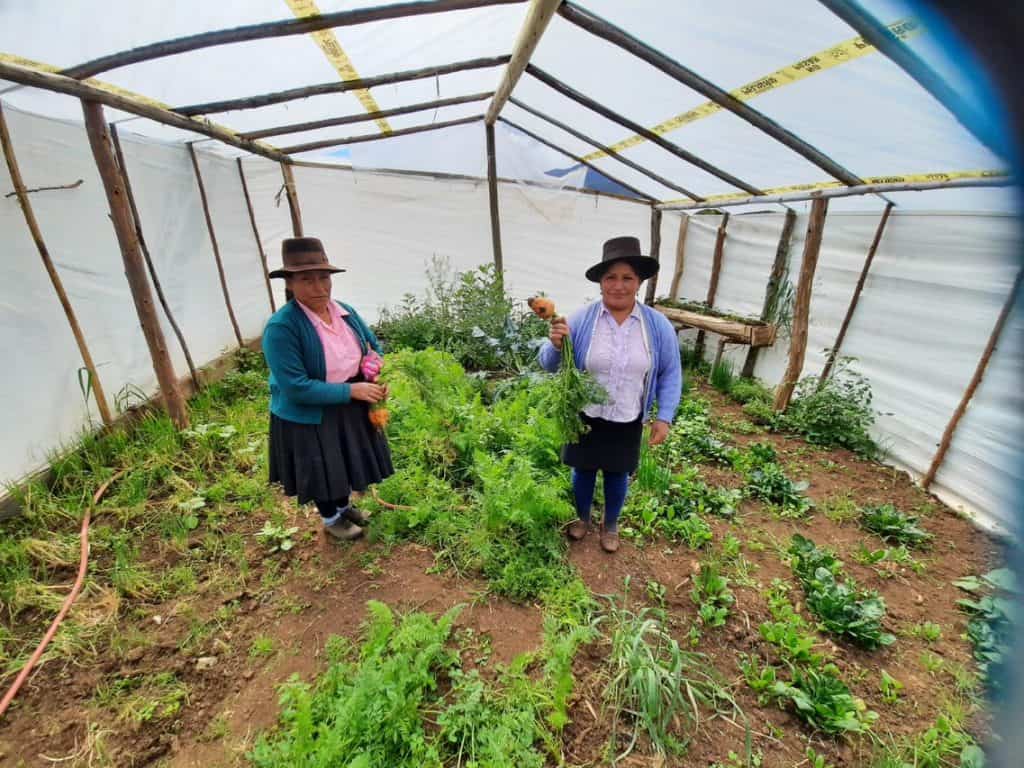
A new pollution skimming boat is capable of clearing 20 tons of trash per day from rivers and lakes.
Scottsdale, Arizona’s advanced water treatment plant is transforming 20 million gallons of wastewater daily into drinkable H2O that exceeds bottled water standards.
At California’s “tribal colleges” 88% of Native American students say they feel a sense of belonging on campus.
An African startup has provided free, clean energy to 150 households and over 9,000 students by harnessing kinetic energy from roads and turning it into emissions-free electricity.
40,000 hair salons in the U.S. donate their clippings to be turned into mats that absorb up to nine times their weight in oil spills.
A Cleveland program that offers legal representation to tenants in housing court has helped 93% of clients avoid eviction.
A South African database of 513 experts across 49 categories is working to amplify women’s voices in the media.
Organizations are working to make sure 746,000 eligible voters held in local jails can exercise their democratic rights.
A German contest has given 843 people 12 months of no-strings cash to see how it might change their lives.
Bolivian farmers have decreased malnutrition by 15% by harnessing the power of rainwater.
Europe’s first solar powered restaurant is serving up refined, emissions-free gastronomy to dozens of diners per day.
Beirut is using 60,000 tons of rubble from last year’s devastating explosion to rehabilitate quarries and build new sidewalks, trash bins and benches.
Alexandria, Virginia, has created a hotline to ask its citizens how they would spend the $60 million the city received from the American Rescue Plan.
The Orkney islands in Scotland are splitting water molecules to turn hydrogen into clean, green energy for their 22,000 residents.
A digitization project is ensuring that over 4,000 historic destinations for LGBTQ travelers aren’t lost to history.
A sustainable gardening program for incarcerated people in Oregon grew 365,536 pounds of food last year, 97% of which went into the prisons’ kitchens.
A New York City program that dispatches social workers to mental health crisis calls has increased the percentage of people who accept responders’ help by 13%.
A 100-mile stretch of coral reef in Mexico is the world’s first natural asset protected by an insurance policy.

Seattle’s 80-80-80 policy requires the regional transit authority to use 80% of its surplus land for housing and ensure 80% of that housing is affordable to people earning 80% or less of the area’s median income.
A California company is offering 12 annual “Moon Days” for full-time female employees to use during their menstrual periods.
A policy in Quebec that charges companies for generating packaging that must be recycled generates $250 million for the province’s cities per year.
Indigenous tribes are helping to remove some of the two million dams across the U.S. that impede fish from swimming freely.
Thirteen states and 29 municipalities across the country have passed anti-discrimination protections to include hair styles and textures.
A musician has reached more than 150,000 patients on her mission to “humanize” hospital sounds.
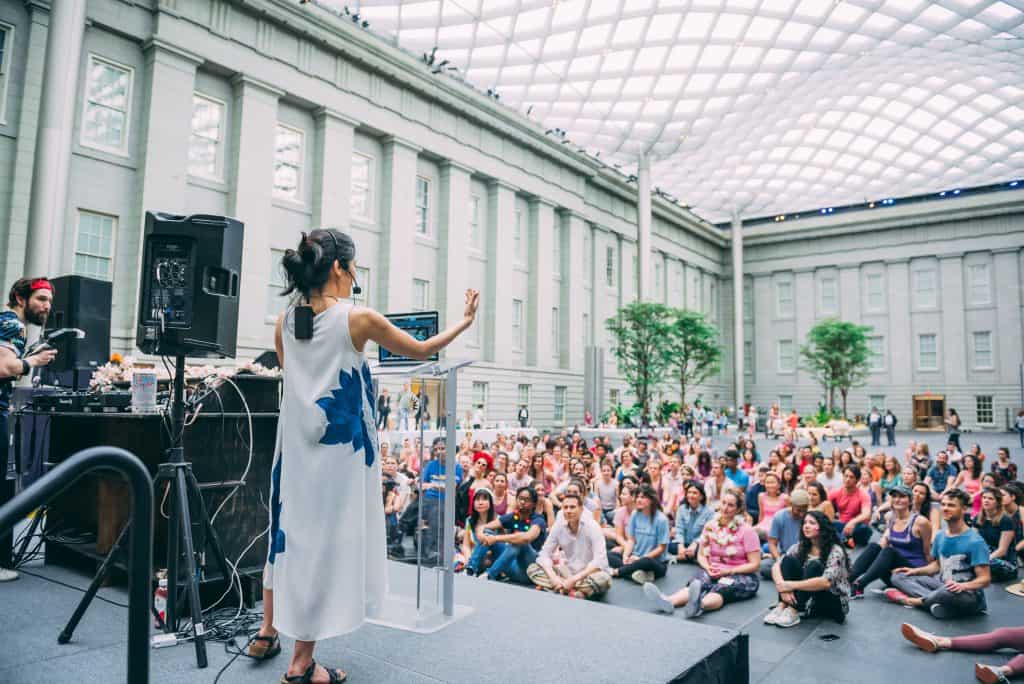
After Boston stopped automatically prosecuting people for small crimes, violent offenses went down by 64%, and even traffic offenses decreased by 63%.
More than 166,000 people have participated in a global project to help voice recognition devices understand more languages.
After getting elected to stated office in Wisconsin, a restaurateur who pays her employees $15 an hour on top of tips is fighting to make higher wages standard statewide.
A foundation led by a former oil executive has capped seven abandoned oil and gas wells, one of which had been emitting as much greenhouse gas each year as 500 cars.
A program in Colombia is tripling wages for thousands of waste pickers.
Organizations are diversifying the 200 refugee resettlement partners in the U.S. by making sure new arrivals are greeted by someone whose culture they recognize as their own.
Companies are increasing their productivity by reducing their work days to five hours while offering the same amount of money.
Volunteers have planted over 75 million seagrass seeds, restoring over 9,000 acres of carbon-capturing grass off the coast of Virginia.
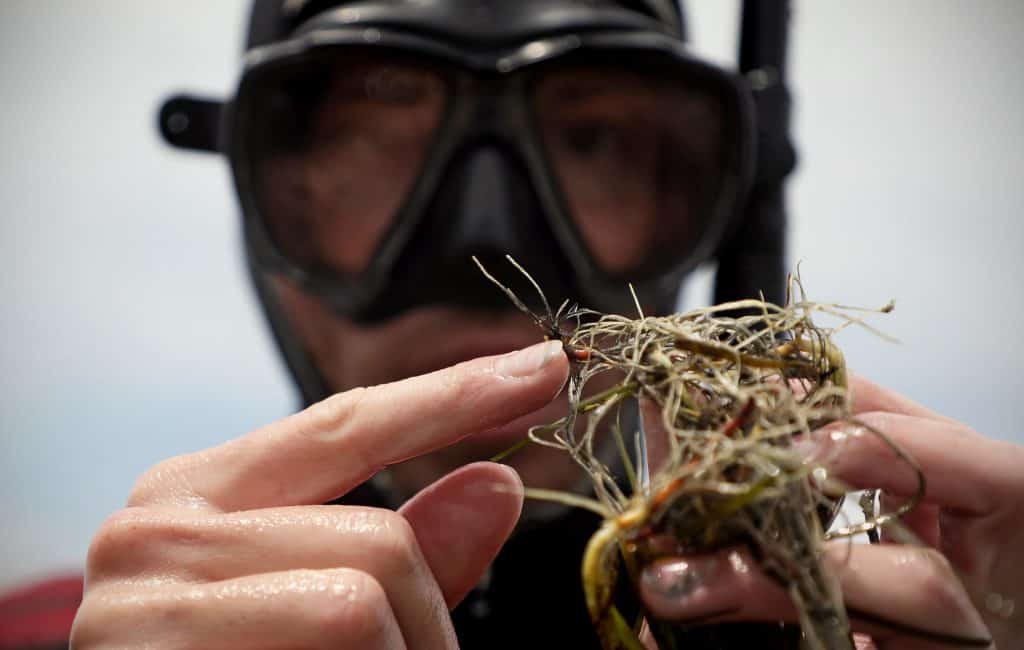
A crowdsourced street safety app is keeping people safe in 71 cities across 16 countries.
A program in Kansas City is using a nine-acre farm to teach refugees agricultural, sales and English skills.
Between 2016 and 2020, at least 13 states expanded the right to vote for people with felony convictions, amounting to millions of newly enfranchised citizens.
A movement to save vanishing historic and vibrant LGBTQ establishments has raised over $117,000.
A California organization that helps people with criminal records become lawyers has 200 participants.
Eight islands in the Pacific have found a way to keep foreign fleets from sailing away with all their fishing profits, netting them $160 million for social programs.
A “rewards” system for shopping locally in Akron, Ohio has driven $500,000 worth of economic activity to locally owned businesses.
A new app that keeps leftover food from ending up in the trash is saving around 200,000 meals a day.
In an effort to take representation into their own hands, a new Indigenous modeling agency has signed supermodels from six Indigenous Nations.
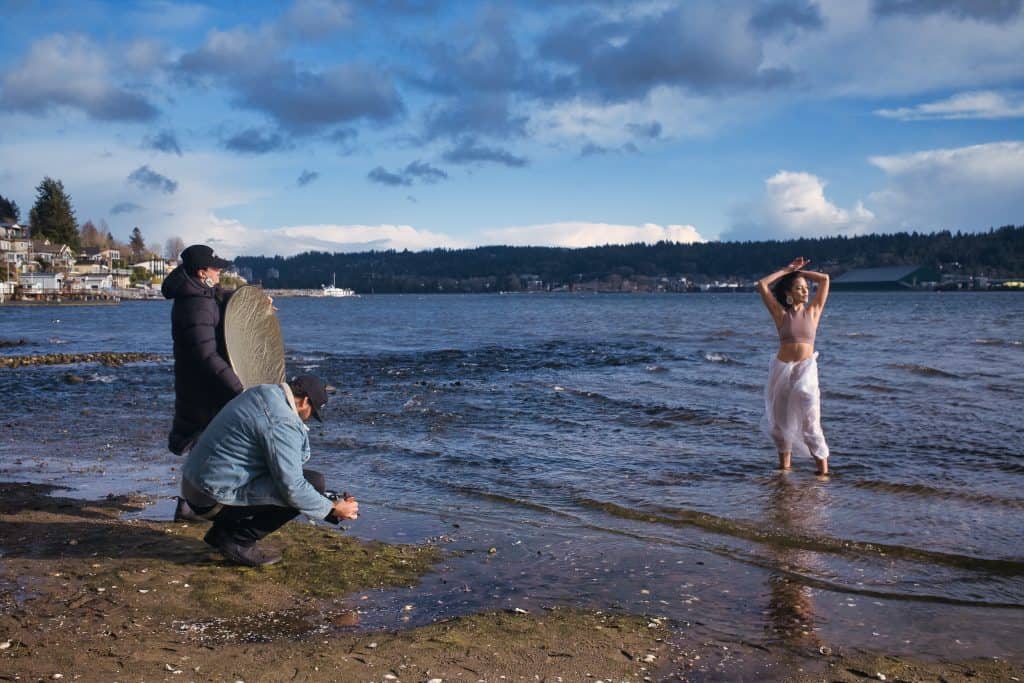
The Ivory Coast is preventing 4.5 million tons of emissions per year with a clean energy generator that will run entirely on cocoa byproducts.
An Alberta initiative is reintroducing its first bison herd on Indigenous land 150 years after the species was nearly eradicated.
Some 87,000 citizen scientists used mobile apps to study environmental changes affecting cicadas’ 17 years cycle.
A new Washington state bill is helping to fill a few of the 54 million spare bedrooms in the U.S. by legalizing group homes.
A church in California is using its land to build a 12-unit affordable apartment complex.
Over 500 people affected by domestic violence have found help through a fake cosmetics shop that alerts the police when an order is placed.
A group in Kenya has trained 619 religious leaders to be allies to the LGBTQ community.
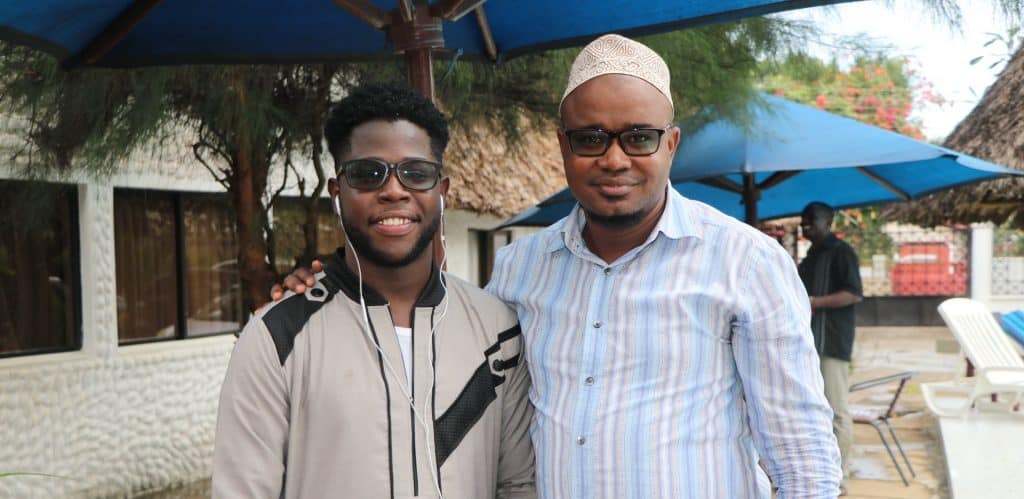
A startup in Portland, Oregon has helped ten people involved with gun violence transition into green sector jobs.
An African tech accelerator projects that venture capital funding for African startups will reach a record $10 billion by 2025.
One CCA in California has gone from providing 16% renewable energy to its customers to over 60% by handing over the reins to the community.
A “transit to trails” initiative in Seattle is opening up breathtaking natural spaces to city-dwellers with a $2.75 bus ride.
A novel program offering drug recovery assistance to people on parole has been completed by 22 out of 50 participants. Only six have recidivated.
An initiative paying miners to help restore the riverbeds they’ve mined has already funded five restoration projects, with ten more slated for this year.
After one Paris school district diversified its public schools, flight to private schools fell from 24% to 16%.
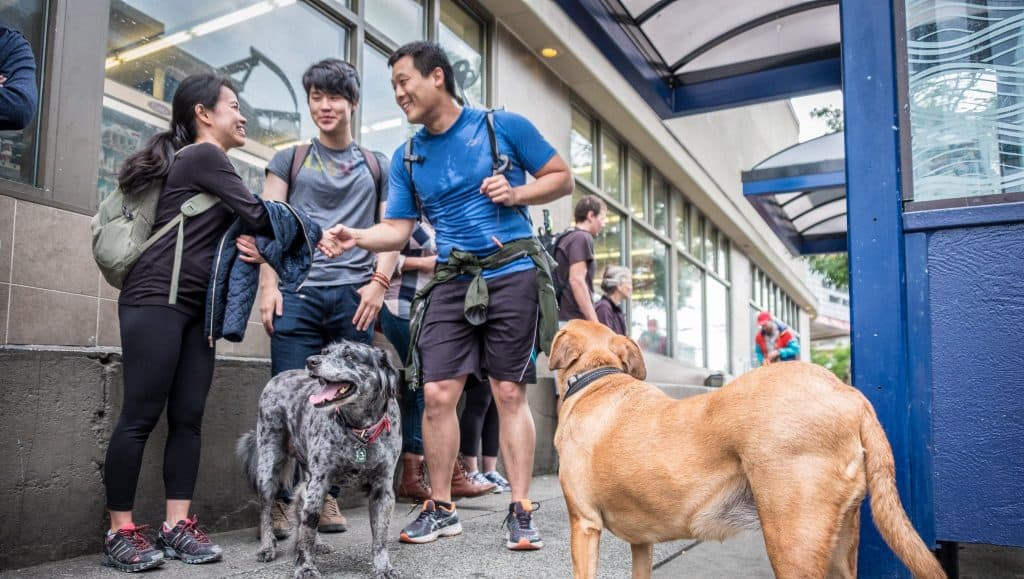
78% of employees at a company that implemented menopause-friendly policies feel better about their workplace.
Arnsberg, Germany, where over 20% of citizens are over 65 years old, is a leader in senior-friendly urban development thanks to its Department of Future Aging.
Stockton, California, gave some of its residents $500 a month, no strings attached, and full-time employment among them rose by 12 percentage points.
A six-month experiment in Santa Rosa, California helped over 200 unsheltered individuals by managing their tent city and supplying them with health care and housing solutions.
An anti-pollution initiative has identified over 5,000 toxic sites around the world for cleanup.
“Conservation dogs” are sniffing out invasive species that cost the U.S. economy over $120 billion a year.
“Bee B&Bs,” “bee stops” and “honey highways” have generated a 45% increase in the number of solitary bee species in Amsterdam between 2000 and 2015.
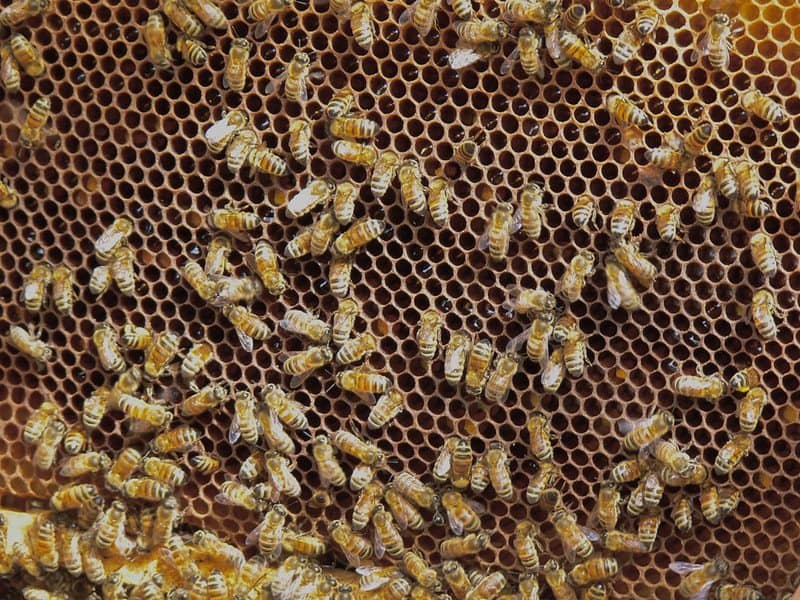
A small Italian town has increased its population from around 300 to over 700 by fashioning itself as a hub for resettling refugees.
Washington D.C. is offering free canoe rides with a catch: paddlers have to recycle some river trash. A similar program in Europe has collected 10 tons of trash in two years.
North America’s first tree-free pulping facility is capable of turning 240,000 tons of straw waste per year into paper products.
Official government policies in the U.K. are fighting loneliness and increasing feelings of well-being in 76% of respondents.
Abilene, Texas announced that, as of the end of 2020, it had reduced chronic homelessness to “functional zero.”
The Seattle Seahawks gave back to the Indigenous community that inspired their logo by offering a once-in-a-lifetime football camp to 250 participants ages seven to 18.
Portland’s ‘Hygiene Hub‘ offers four essential services to its unsheltered population: bathrooms, showers, laundry and medical care.
99% of citizens in Bududa, Uganda who deliberated policy options voiced their support for girls as well as boys to go to school.
France is letting drivers trade in their cars for a 2,500 euro credit that can be used to purchase an electric bike.
At a prison restaurant serving world-class cuisine to the public, recidivism rates among the incarcerated chefs and waiters is 21% lower than average.
A sea grass responsible for 10% of the ocean’s carbon sink and capable of yielding 3.5 tons of marine rice per hectare is exciting European chefs and climate scientists alike.
Nearly 40 different right-to-repair bills are being considered in 25 U.S. states, aiming to make product information more readily available and devices easier to open.
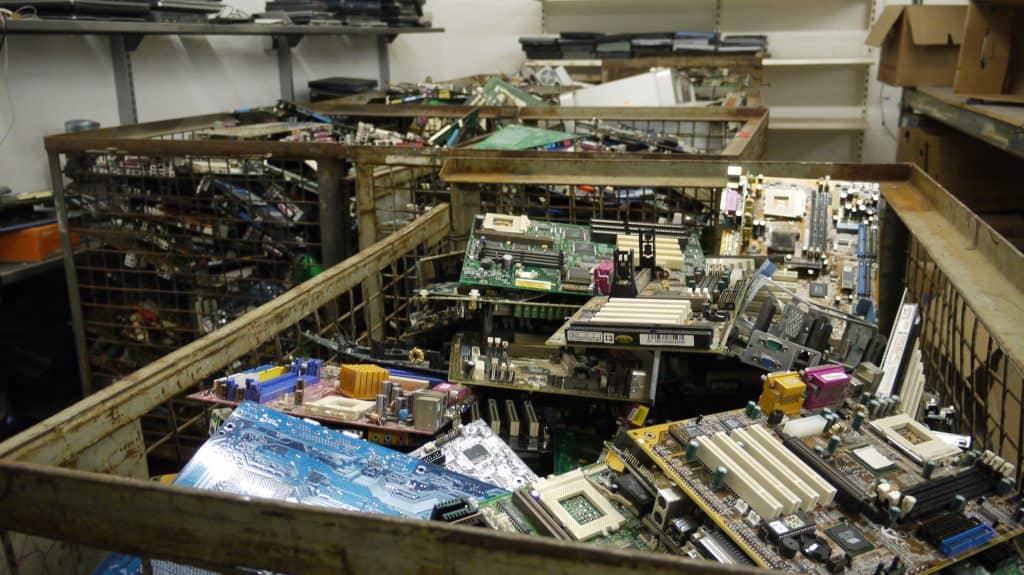
After Baltimore suspended prosecutions for minor crimes like drug possession and prostitution, the violent crime rate dropped by 20%. Now the city is making the change permanent.
Singapore is launching a massive urban farming initiative to locally produce 30% of its food supply by 2030 even though only one percent of its land is dedicated to agriculture.
A French bill was passed by a margin of 98 to three criminalizing accent discrimination.
By converting used EV batteries into solar power generators, campers are helping to save the 11 million tons of lithium-ion batteries expected to be discarded between now and 2030.
By placing output sensors on board salting trucks, communities in upstate New York have cut their salt usage in half, saving the ecosystems of nearby lakes and streams.
A community-owned project in Bath, England, has built five solar farms and 15 rooftop solar projects that generate enough electricity to power 4,300 homes.
A Canadian program providing cash payouts to low- and middle-income families reduced child poverty by 33% in two years.
Eleven “saree libraries” across Gujarat, India are providing free access to top-end clothes for over 4,700 low-income women.
An 18-story high-rise made entirely of wood has saved over 2,400 metric tons of carbon emissions.
Volunteers in Minnesota have rescued and recycled over 600 plywood boards from storefront windows.
Citizen-caretakers are making sure 760,000 of Berlin’s trees stay well hydrated.
A divorce court in China ordered a man to pay $7,700 to his ex-wife for the household chores she did while they were married.
The Cherokee Nation is reviving their language by offering a two-year program of 40-hour-per-week lessons — and paying students $10 an hour to learn.
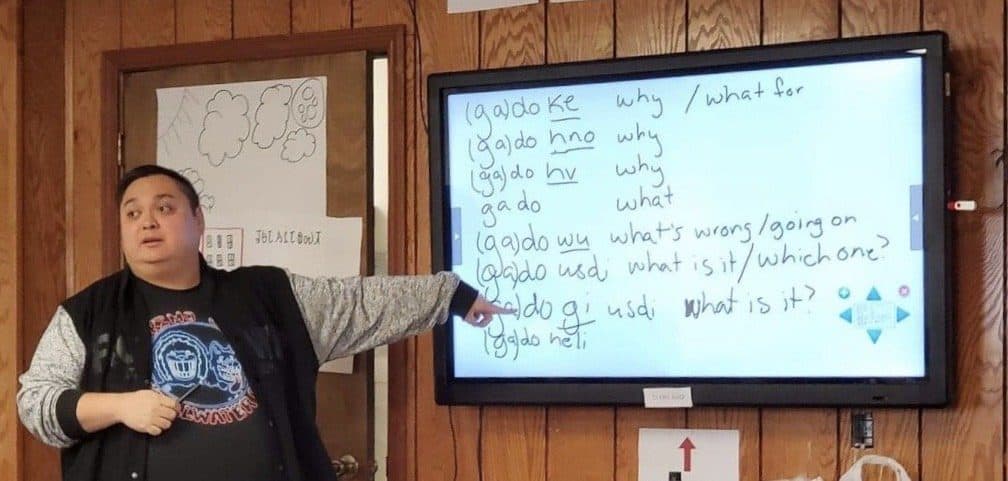
Cities around the world are creating micro-forests in spaces no bigger than a tennis court that can attract up to 600 species of native plants and animals.
A community of 13 tiny houses in Portland is providing structure, stability and a path to permanent housing.
The English National Opera set a goal to help 1,000 Covid patients heal their lungs by belting out tunes.
Durham, North Carolina has forgiven $2.7 million in fines stemming from around 50,000 traffic violations, some of which were 40 years old.
A program in Eugene, Oregon that replaces armed police with social workers answers around 23,000 calls per year, saving the city over $8.5 million.
A fund that makes loans to the smallest businesses has been operating continuously for 167 years.
A program in San Mateo, California is building housing for farmworkers that costs less than $3 per day.
In Philadelphia, 317 landlord/tenant pairs have avoided eviction proceedings through a mediation program that helps them work out a solution face-to-face.
A 2019 bill prohibits Oregon landlords from terminating month-to-month leases without cause after the renter has lived there for 12 months.
Welsh landowners are committing to fulfilling 65% of their basic needs — including food, water, energy and waste — using only the land they live on.
54% of cars sold in Norway in 2020 are fully electric — add plug-in hybrids to the mix, and that figure tops 80%.
Miami is switching to electric school buses thanks to a student’s science fair project that found 5,000 parts per million of CO2 inside her bus.
In November 2019, Italy’s first tuition-free culinary school opened its doors to its first nine students.
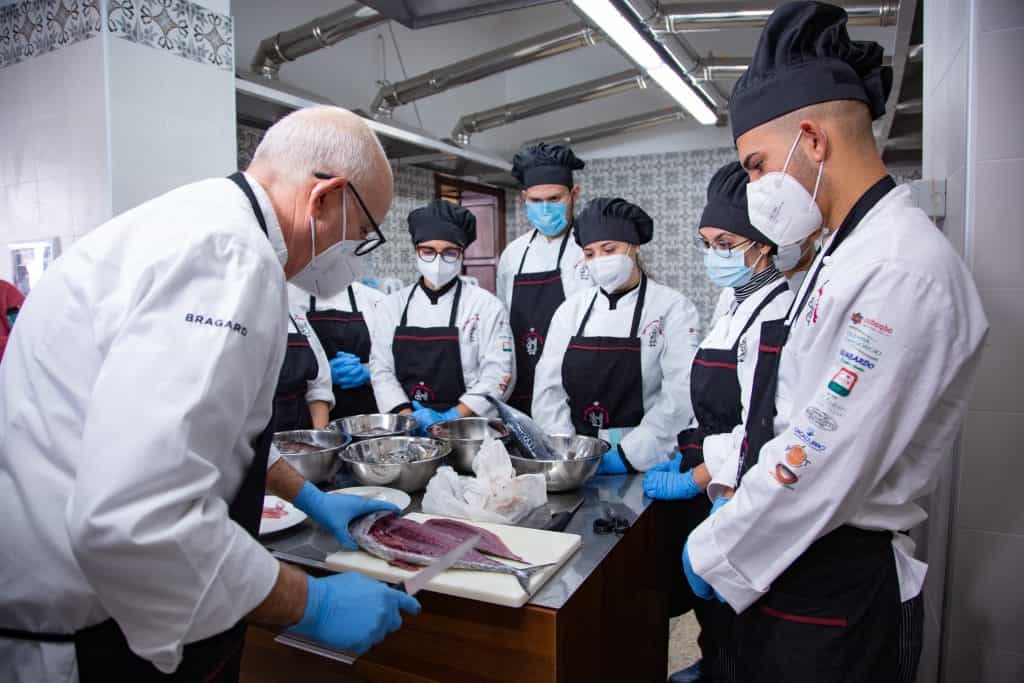
In the spring of 2020, the Regional Indigenous Seed Growers Cooperative distributed 11,000 packets of seeds to 270 Indigenous communities.
A “Calm Hotline” in Barrancabermeja, Colombia, designed to de-escalate men’s emotions before they lead to violence, has decreased incidents of domestic violence by 43%.
Turin, Italy, has transformed a 700-meter stretch of former tramway into a public park.
Watts, Los Angeles, has decreased violent crime by over 70% in housing developments as a result of gang intervention programs.
Over 540 libraries across the U.S. have eliminated fines for overdue items.
Colorado has converted six RVs into mobile addiction treatment clinics to reach people far from urban centers.
A megachurch with more than 30,000 members is running a free counseling center with eight licensed clinicians to close the mental health gap in Black communities.
After New Zealand put gold stars on the bins of folks who properly sort their cans and bottles, the amount of material able to be recycled went up from 48% to 80%.
Paris will double its dedicated pedestrian space on the Champs Elysées by 2030.
Wildlife bridges in Wyoming have resulted in an 81% decrease in collisions between wildlife and cars.
After adopting a four-day work week, Microsoft found that worker efficiency rose by 40%.
Edmonton boasts close to 400 “garden suites’‘ across the city, pulling more people into existing neighborhoods instead of building out.
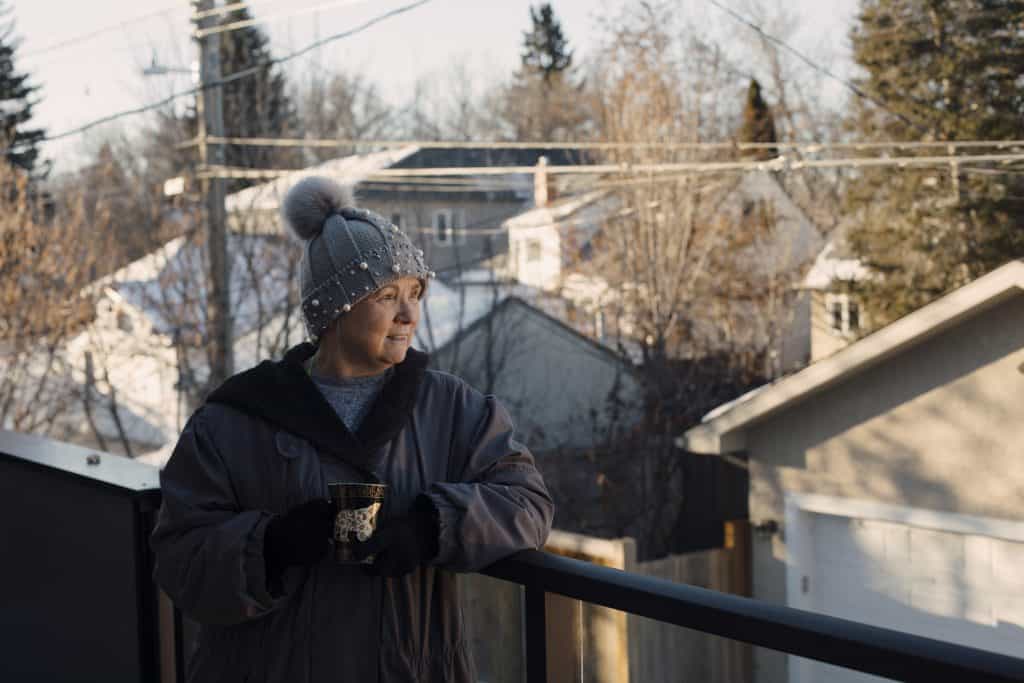
“Hempcrete” is a concrete alternative that can sequester 19 pounds of carbon per cubic foot — roughly the annual emissions of three refrigerators.
Oregon has issued 3,100 roadkill salvaging permits over the past two years, providing a free source of food for struggling families.
A Midwest organization is offering a 24-hour hotline and free unlimited counseling sessions for farmers far from access.
Nearly 80% of Europeans would rather repair their devices than replace them.
One month after receiving a one-time cash gift of $5,800, 50% of homeless people moved into stable housing and 70% of them became food secure.
A program in the Czech Republic using meals to break down barriers between natives and immigrants has connected 1,676 families.
A program in Tulsa, Oklahoma is creating career pathways for the approximately two million college-educated immigrants in the U.S. working in low-skill jobs.
An Indiana city with 140 roundabouts has saved lives, reduced injuries from crashes and lowered carbon emissions.
Over 520,000 Kenyan refugees were given the right to work after three decades of restrictions.
A program offering $10,000 to people willing to move to Tulsa has brought in 1,200 workers plus 600 additional residents accompanying them.
A tech company has created a fully repairable computer that sells for less than $1,000.
More than 2,500 local and state down payment assistance programs are helping homebuyers surmount a hurdle that often keeps homeownership out of reach.
Amsterdam’s opt-in system for junk mail saves 6,000 tons of paper per year.

A German company will have recycled 2,000 tons of electric-vehicle batteries by the end of the year.
Adopted otter pups are helping California kelp forests expand by up to 600%.
A program lending free e-bikes to Vermonters reports that 17% of people who borrowed one had bought one of their own within 12 months.
20 students traveled to four different U.S. states through a domestic exchange program connecting teens to different cultures.
43% of participants in a support program that pairs people who are unhoused with housed volunteers reported an increase in happiness.
An U.K. government program is helping five million renters make sure they don’t lose their security deposits unjustly.
Alaskans are taking cues from Indigenous builders to replace houses built 50 years ago with sustainable architecture that can withstand the elements.
A nonprofit in Portland has helped over 50 Black homeowners age in place while preventing communities from being splintered by gentrification.
